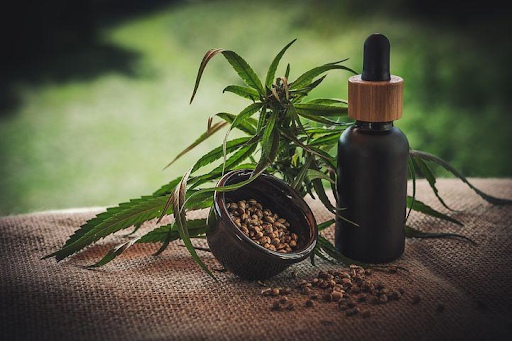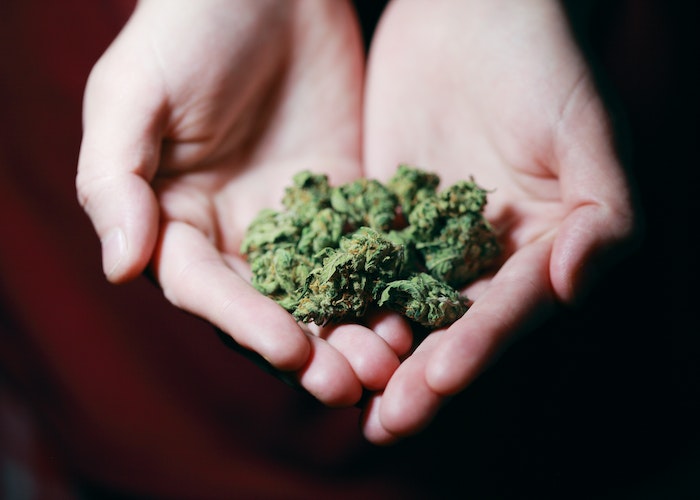Contents
Recurrent seizures are the hallmark of the neurological illness known as epilepsy, one of the most prevalent nervous system disorders affecting people of all ages. Anti-seizure drugs and diet therapies, such as variations of the ketogenic diet, are used to treat epilepsy. An option for medicine is surgery, particularly when diet and medication fail to control seizures or when a patient cannot endure drug side effects such as nausea, lethargy, headaches, vertigo, and impaired vision.
Cannabidiol (CBD) artisanal (non-pharmaceutical) products have gained popularity recently because of their purported medicinal properties. Numerous health issues, including epilepsy and seizure disorders, are treated using CBD, a naturally occurring cannabis plant ingredient that is lawfully extracted from hemp. Researchers from Johns Hopkins Medicine have demonstrated that CBD may lessen the adverse effects of anti-seizure drugs and enhance other facets of health and quality of life for epileptic patients.
Here are some of the ways CBD helps a person with epilepsy disorder.
CBD’s Effect on The Brain of a Person with Epilepsy
CBD oil has analgesic, anti-inflammatory, and neuroprotective properties and is now being studied as a future therapy or cure for epileptic disorders. Once in the bloodstream, CBD oil interacts with specific brain cell receptors to relieve pain, regulate behavior, and govern cognition. It also interacts with serotonin receptors, which are involved in several physical and mental health disorders.
Studies have also revealed that CBD oil has anticonvulsant effects. These effects lessen the number of seizures an epileptic patient has and other condition-related symptoms, including discomfort. It also interacts with other brain receptors.
CBD Is Beneficial for Lennox-Gastaut Syndrome and Dravet Syndrome
Lennox-Gastaut syndrome and Dravet syndrome are two uncommon kinds of epilepsy for which some specialists believe CBD may be beneficial. The syndromes often manifest in children, are treatment-resistant, and result in severe symptoms, including convulsions. To treat the seizures that these uncommon types of epilepsy induce, some doctors administer the FDA-approved CBD isolate Epidiolex.
Their study stresses the significance of the medication’s uniform potency and regular distribution. People using Epidiolex may feel more secure knowing they receive the correct dosage. Since Epidiolex is 98 percent pure CBD compared to other CBD isolates and oils, it might provide a stronger, more reliable impact.
According to anecdotal evidence, people have utilized alternative kinds of CBD and CBD oils to alleviate epilepsy symptoms and other problems, especially those with symptoms that are challenging to treat. Before using CBD and broad-spectrum oils, anybody thinking about doing so should explore their alternatives with a doctor.
CBD for Children with Epilepsy
CBD may also help children with epilepsy whose symptoms don’t respond well to standard therapies. For instance, Epidiolex has received FDA approval for use in children over 2 with Lennox-Gastaut and Dravet syndromes.
According to a review in the Journal of Clinical Neurophysiology, CBD, alone or as a component of a herbal extract that contains CBD, reduces the frequency of seizures in kids with treatment-resistant epilepsy.
Despite research suggesting that CBD may lessen seizures in kids with drug-resistant epilepsy, a second analysis published in Epilepsia warns that similar findings do not apply to other cannabis components. According to researchers, the only recognized substance with these qualities is CBD.
Regarding its long-term efficacy, CBD might not be appropriate for all kids. According to research published in CNS Drugs, CBD was beneficial in roughly 27% of kids with treatment-resistant epilepsy over four years. However, around 81% of individuals reported having adverse effects, and about 23% had severe side effects.
CBD For Tuberous Sclerosis Complex
About 1 in 6,000 people have the uncommon disorder tuberous sclerosis complex. Noncancerous tumors develop in numerous regions of your body due to a genetic disease. Some patients experience seizures as a result of brain tumors.
In a clinical trial, 148 individuals with tuberous sclerosis complex were subjected to daily doses of 25 mg/kg and 50 mg/kg of Epidolex compared to a placebo. For the Epidiolex group, the median improvement was 48%, compared to 24% for the placebo group.
CBD Oil to Treat Seizures
The precise mechanism through which CBD reduces seizures is unknown. The endocannabinoid system is a network of receptors and neurotransmitters in your body. And it can assist in regulating immunological responses and bodily processes, like eating, sleep, and pain.
CBD can interact with endocannabinoid system receptors to alter these processes. According to animal studies, CBD’s anti-seizure benefits may result from lowering neuron excitability by interacting with the GPR55 and TRPV1 receptor subtypes.
You should receive therapy from a neurologist if you have a seizure problem. Talking to your neurologist about whether you should take CBD oil is crucial. Even though it is typically safe to use, there is always a chance of medication interactions. Additionally, some individuals who take CBD report having more seizures. As a result, you should have a specialist overseeing your usage of CBD, just like you would with any antiepileptic medication.
Epidolex 2.5 mg/kg twice daily is CBD’s recommended beginning dosage, and the highest dosage is 10mg/kg twice daily, with a typical maintenance dose of 5mg/kg twice daily. It should be started or discontinued gradually, just as other anti-seizure drugs, as abrupt changes might worsen seizure activity.
Final Note
When using CBD oil to treat seizures, it’s crucial to see a doctor. If CBD interferes with your existing prescriptions, your doctor can help you figure that out. They can assist you in keeping track of the frequency of your seizures and determining whether CBD is appropriate for you.




